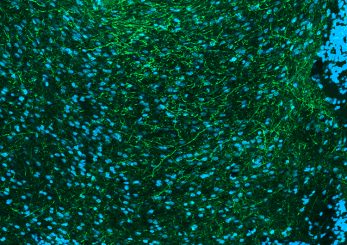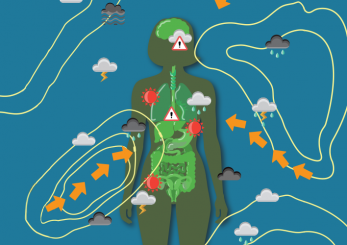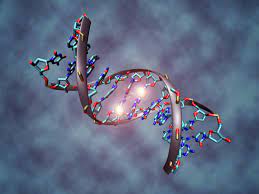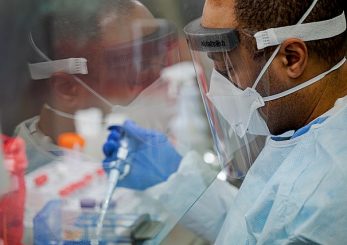BDP Clusters represent an evolution in the highly successful Bloomberg Distinguished Professorships program. First announced in 2021, these faculty-developed interdisciplinary clusters recruit new BDPs and junior faculty members to Johns Hopkins to conduct transformational research in crucial fields. BDP clusters offer unparalleled levels of support, including access to equipment and core research facilities. Post-doctoral researchers, graduate students, and support staff will also be recruited within each cluster to ensure the cluster’s success.
The development of BDP clusters is a grassroots process reflective of the leadership and vision of the Johns Hopkins faculty. During the initial phase of BDP cluster selection, faculty members from across the university, including many current BDPs, joined together to develop multi-disciplinary research cluster proposals aimed at keeping Johns Hopkins at the forefront of addressing the world’s greatest challenges. Following the submission of dozens of cluster proposals, teams of distinguished external faculty evaluated the proposals and submitted recommendations to deans, directors, the provost, and the president for final selection.
Recruiting for BDP clusters began in 2022 and will continue for several years. See below for more detailed descriptions of each cluster, including their vision statements, current position openings, and any other relevant documentation. These pages will be updated often as each cluster proceeds in its individual recruitment process.

This cluster will make JHU the world leader in solution-focused practices and policies to promote racial justice in health, housing, and education (HHE) for young people. The team will have expertise in achieving racial justice in HHE, facilitating an advance beyond problem identification towards development and testing of promising practices and translating these into policy solutions at scale.

This cluster bridges core strengths of computer sciences, social sciences, and ethics to mitigate risks of injustice and maximize benefits of societal good. They will focus on AI research in areas of strategic opportunity for Johns Hopkins researchers to advance critical subfields and create new tools with an emphasis on improving the human condition.

This cluster envisions AI systems that collaborate with humans to understand and improve the human condition. It has a strong focus on the integration of data science, machine learning, and the deep domain expertise at Johns Hopkins to develop scalable and multimodal AI systems that drive discovery, decision-making, and prediction in science, engineering, medicine, and public health.

New discoveries and knowledge about the human brain have provided researchers unprecedented opportunities to develop effective strategies to enhance and preserve brain function. This cluster will study brain resilience across the entire human lifespan and develop novel tools for observing and manipulating brain function on broad spatial and temporal scales.

Addressing the complex problem of climate change will require humanity to identify and promote solutions that maximize synergies and minimize conflicts between human health and climate adaptation and mitigation. This cluster will develop mitigation and adaptation strategies to combat the health effects of climate change in an equitable, adoptable, sustainable, and economically feasible manner.

This cluster will develop new insights in the fundamental areas of genome biology and epigenomes through the use of new imaging technologies, genome editing, single-cell techniques, and advanced computational and quantitative methods. Cluster scientists aim to discover fundamental principles linking the architecture, function, and variation in the genome and epigenome to human health and disease.

Measurement science is experiencing a revolution driven by breakthroughs in imaging and quantum-enabled technologies which are expected to exceed the capabilities of traditional tools. This cluster brings together diverse expertise in metrology and sensing in order to open new frontiers in diverse fields including fundamental particle physics and quantum materials, chemical reactivity, biological processes, and medicine.

This cluster will address the pressing social need of achieving better health outcomes in light of ever-rising health spending. Promising discoveries for meeting this challenge often fail to become widely adopted in the face of numerous complexities. This cluster will generate solutions aimed at aligning incentives and integrating the science of systems, economics, and management.

This cluster will carry out an ambitious research agenda to study both how policy can drive and promote technological advancement, and how such policy might be designed to govern/mitigate risks that such advancement may pose to society.

This cluster will address key gaps in computational methods from modeling to phylogenomics and One Health. This investment will ensure a group of interdisciplinary faculty who can rapidly leverage existing tools, expertise, and relationships to guide evolving scientific inquiry and policy decisions around current and future pandemics.

This cluster unites scientists, engineers, and market and policy experts with interests aligned toward solving critical technological and societal problems arising from the use of unsustainable chemicals and materials, fossil fuels, and other anthropogenic, environmentally harmful substances.